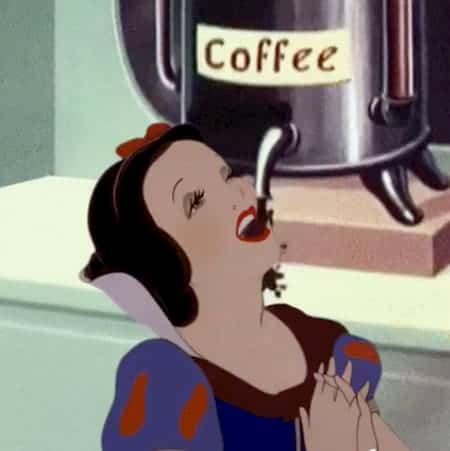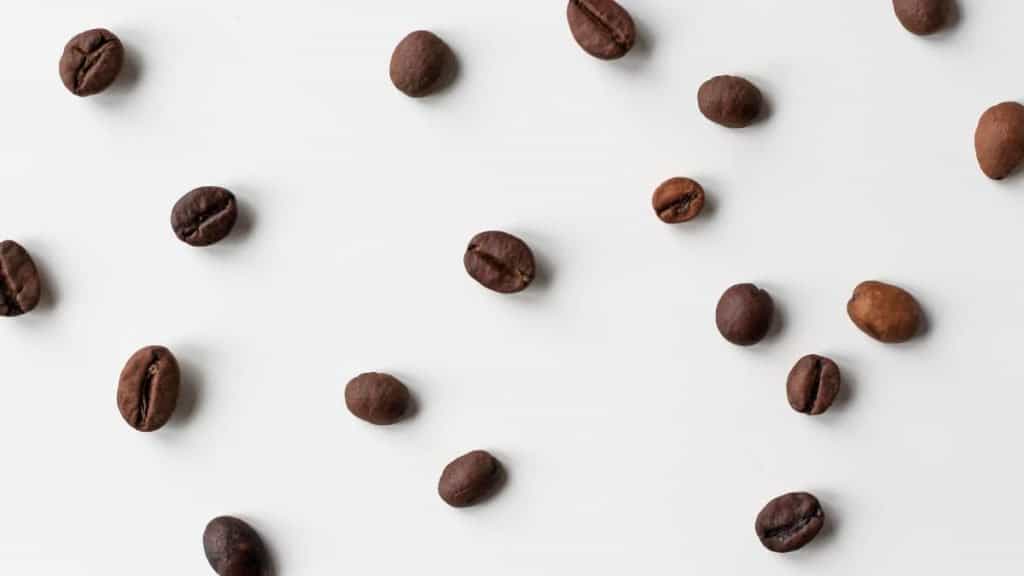How Much Caffeine Is Too Much And Can You Overdose On Coffee?
While you might not treat it as so, your cup of coffee contains a powerful stimulant.
Yes, I’m talking about caffeine, masked behind a thick crema or lashings of milk, but it’s there, and it’s a drug although we probably don’t consider it one.
So does a reasonable amount of caffeine have any benefits?
Yes! That much needed shot of espresso in the morning can indeed yield some health-related benefits.
Some of these include:
- Potentially helping you peel the pounds via a higher metabolism. Several studies suggest this is because coffee can increase your metabolic rate by around 3%.
- Possibly reducing your risk of type 2 diabetes. This paper analysed 18 studies on the topic, concluding the risk decreases by as much as 7% in coffee drinkers.
- According to a 2006 study, consuming 4 cups of coffee may protect against cirrhosis of the liver.
With that in mind, you might be thinking okay… It seems I should drink coffee by the gallon and not by the cup!

Wait, not so fast…Firstly, the studies above only apply to black coffee without any cream, sugar, tasty syrup and so on.
Secondly, if you have wondered is there a such thing as having too much caffeine..Yes there is!
There’s a tipping point where all of this goodness comes with a higher likelihood of side effects.
So how much is too much?
Well, that depends…
Caffeine Tolerance
Some of us are frequent coffee drinkers, and the effects of caffeine are less pronounced in each cup.
Why?
Because we have a caffeine tolerance and we now need more of it to achieve the same effects as someone who doesn’t drink coffee daily.
Tolerance can kick in fast, according to this study, you only need to drink coffee for around four days to be relatively tolerant to caffeine.
Now for the good news: Caffeine tolerance can reset in a matter of days..Although if you do consider this route, weaning yourself off slowly might help you avoid feeling fatigued via withdrawal.
Or instead, you could cycle caffeine. Tapering consumption to reduce tolerance slowly…I mean, who wants to stop drinking the liquid of the gods COMPLETELY?
Now in the opposite of tolerance, some people are more sensitive to the compound:
Caffeine Sensitivity
Why are some people are just more sensitive to caffeine?
Because of our different genetics and the way our liver processes it can differ.
Take me, for example, I love coffee, but I can’t drink it after around 3 pm. Otherwise, I’m not going to sleep when I’d like to my mind races when my body is tired.
These groupings can be categorized into 3 different segments, as below:
Normal sensitivity: Most people fall into this section. According to the Food and Drug Administration (FDA), healthy adults in this bucket can consume around 400mg of caffeine without any adverse side effects.
Hyposensitivity: Wondered how a colleague keeps drinking coffee with no issues? That’s probably because they are hyposensitive. Around 10% of us can drink more than average amounts of coffee with no adverse side effects.
Hypersensitivity: Individuals in this bucket have a heightened sensitivity to caffeine and cannot consume it without feeling some adverse side effects.
So your answer to how much should you consume, mostly depends on where you fit on the caffeine sensitivity scale.
But since no one orders their latte in milligrams, you might be wondering how much caffeine is in a cup of coffee?
Don’t worry, I’m about to cover that next!
How much caffeine in coffee?
An average cup of Joe contains between 70mg – 140mg of caffeine. As a result, most healthy adults can drink around 3-4 cups of coffee without going overboard.
However, the caffeine content can vary significantly depending on the type of coffee you drink and the type of beans used to make it.
For example:
- Drip or filter contains between 115mg – 175mg caffeine.
- An average espresso shot contains around 63mg of caffeine (thus a double being 126mg).
- Decaf contains around 3mg of caffeine.
*These values are based on averages. To learn more about the specifics check out our post about caffeine in coffee.
Beans can also vary in caffeine content:
- Arabica is the less potent type and preferred in the west, averages around 1.2% potency.
- Robusta beans contain around double the caffeine concentration, and they originally riginated from sub-Saharan Africa.

Other Sources Of Caffeine
When you think about it, you would be forgiven if you don’t realise caffeine can be found all around us in other forms outside of your daily latte.
Whether that’s in energy drinks, pre-workout powders, or even chocolate… It’s is everywhere!
Some of the other most popular caffeine loaded products include:
- Energy drinks: Varies but, on average, around 300mg of caffeine. Be aware some energy shots such as the 10 hour energy shot contain above 400mg of caffeine, higher than the average person can consume without adverse effects.
- Chocolate: Dark chocolate contains the most at about 9mg caffeine per ounce (approx 0.03%).
- Other fizzy drinks: Every bottle of Coke contains 12mg of caffeine per can.
As you can probably tell, it’s easy to discount the amount of caffeine you’re consuming without knowing so. Especially as there are 100s of other products you could be eating or drinking, which contain it.
Now that we’ve established you can have too much, what actually happens when you consume more than you should? Can you OD on coffee?… Unfortunately, yes, you can!
Caffeine Overdose
I don’t know about you, but when I was in my final year at college, I became a caffeine fiend. During the exam period, I’d ramp up my caffeine intake to insane (not recommended) levels.
During the first few days, I’d feel jittery and a couple of times slightly out of breath without lifting a finger..At the time, little did I know being out of breath was a classical sign of a caffeine overdose!
According to Healthline, the primary symptoms include:
- Dizziness
- Diarrhea
- Insomnia
- Headache
Whereas more severe signs include:
- Breathlessness
- Hallucinations
- Vomiting
- Chest pain
How likely is a caffeine overdose?
This depends on your caffeine consumption per day.
If your a frequent coffee drinker and already consume more than the 400mg recommended caffeine cap in a day, you might want to reassess your intake.
Death By Caffeine – Possible Or Not?
While death is the most extreme of circumstances, the more likely scenario is ending up in the emergency room having had too much.
In the United States, according to this report, ER visits attributed to high caffeine energy drinks have increased by over 100% between 2007 and 2011 to over 20,000 annually.
While you can feel the adverse effects of caffeine when you have too much, fortunately, death by caffeine isn’t common.
A 2018 review documented 96 deaths attributed to caffeine toxicity. This analysis included all scientific journals published online since records began on the topic of caffeine.
So how much is considered highly toxic?
Lethal Caffeine Dose
According to this study an average lethal dose is around 10g (10,000 mg of caffeine). Whereas another report suggests 5-6g is enough to be toxic.
To put that in context, on the lower end, that’s at least 36 average coffees. It sounds like a monster of a task in itself, right?
But, the problem here doesn’t necessarily arise from visiting your local coffeeshop too often. Instead, the problem stems from other sources of caffeine.
it’s much easier to consume more than 400mg of caffeine if your regularly taking pills or drinking concentrated energy drinks.
While these pills and drinks are sold in your local 7/11, they can be deadly if used in excess.
The FDA has warned that a teaspoon of pure powdered caffeine can be equivalent to 28 cups of coffee. They also noted that such high purity caffeine products could be dangerous, given that it’s easy to have too much.
Final Word
Relax..for us, caffeine addicts, it’s clear that we are fine as long as we don’t over do it.
As noted earlier, I can’t anyway as I can’t hack too much caffeine (just my luck eh).
So keep sipping espresso…Just as long as you don’t end up drinking crazy amounts!
Being aware of the mg of caffeine in the products you consume will help you maintain the right balance for you.
Remember, if in doubt just don’t have any – you can always have more tomorrow.
*Disclaimer: Nothing in this article or on this website constitutes to medical advice and it is strictly informational. For medical advice please talk to your physician.

